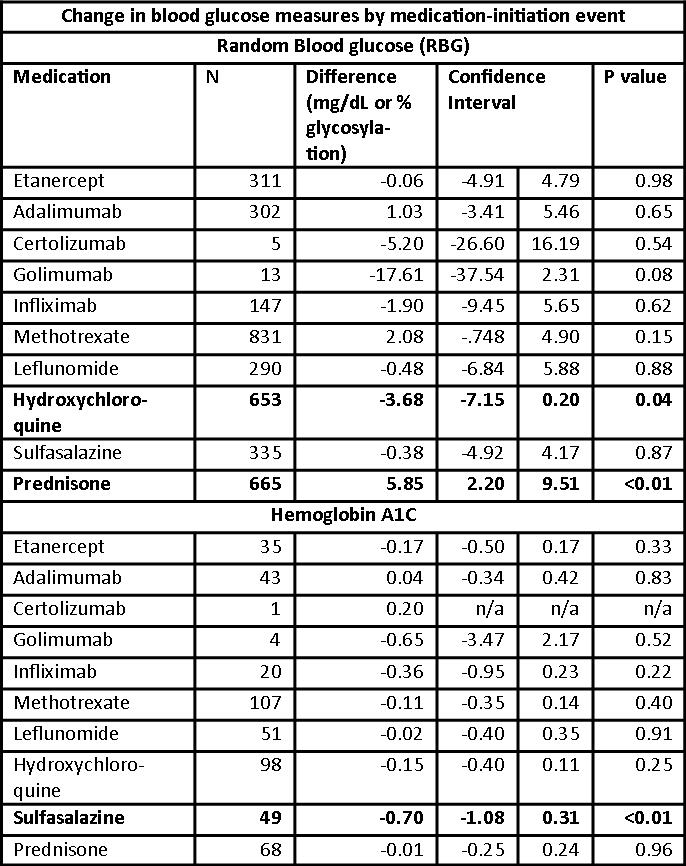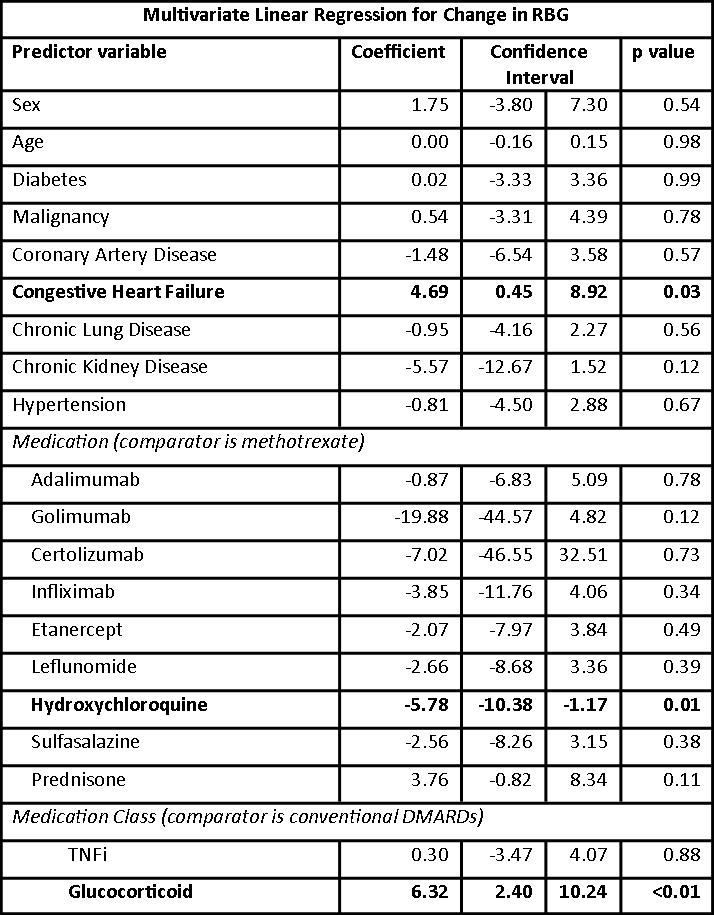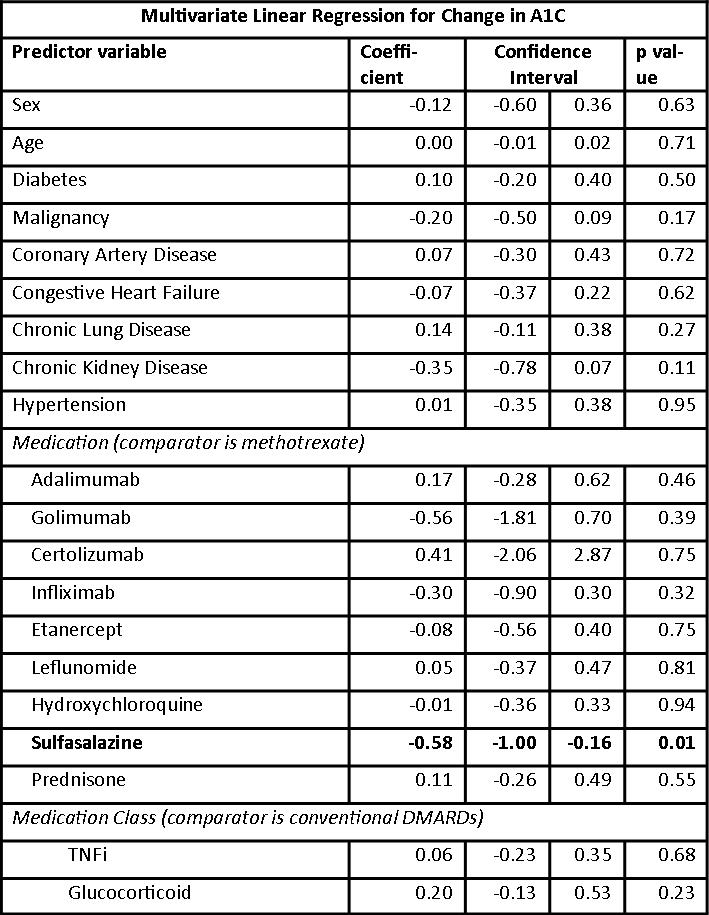Session Information
Date: Monday, November 6, 2017
Title: Health Services Research Poster II: Osteoarthritis and Rheumatoid Arthritis
Session Type: ACR Poster Session B
Session Time: 9:00AM-11:00AM
Background/Purpose: There is evidence linking activation of the innate immune system and insulin resistance. Perturbations in glucose homeostasis upon initiation of tumor-necrosis factor inhibitors (TNFis) and conventional DMARDs have been described in small studies, perhaps due to suppression of inflammation. To evaluate this association, we measured glucose before and after initiation of TNFis and DMARDS in a large registry of patients with rheumatoid arthritis (RA).
Methods: Patients enrolled in the Veterans Affairs RA (VARA) registry were retrospectively examined. Subjects were selected who, during study follow-up, initiated treatment with TNFis, prednisone, or DMARDs, and for whom proximate random blood glucose (RBG) or hemoglobin A1C (A1C) values were available. Proximate values were the closest RBG within 2 weeks prior to, and 6 months following, medication initiation. A1C values were the closest A1C within 2 months prior to, and 12 months following, medication initiation. Measurements were compared before and after medication initiations using paired t-tests and multivariate regression, adjusting for demographics and comorbid conditions.
Results: 2111 patients contributed at least one proximate measurement surrounding initiation of any agent. Significant decreases in RBG were associated with 653 hydroxychloroquine-initiation events (-3.68mg/dL, p =0.04), and increases were noted in RBG surrounding 665 prednisone-initiation events (+5.85mg/dL, p <0.01). A significant decrease in A1C was noted surrounding 49 sulfasalazine-initiation events (-0.70%, p <0.01). Multivariate regression analyses suggest sulfasalazine and hydroxychloroquine use as predictors of lower post-medication-initiation blood glucose values; congestive heart failure was also a predictor for higher RBG values after all medication-initiation events. We found no association of TNFi initiation with changes in glucose.
Conclusion: This study quantifies hyperglycemic effects of prednisone initiation. We also observed hypoglycemic effects of sulfasalazine and hydroxychloroquine initiation. TNFi initiation was not observed to impact measured blood glucose. Further large-scale and prospective investigation of DMARD and TNFi blood glucose effects in other populations is warranted.
To cite this abstract in AMA style:
Wood PR, Manning E, Baker J, Cannon G, Davis L, England BR, Mikuls TR, Caplan L. Blood Glucose Changes Surrounding Initiation of Tumor-Necrosis Factor Inhibitors and Conventional Disease-Modifying Anti-Rheumatic Drugs in Veterans with Rheumatoid Arthritis [abstract]. Arthritis Rheumatol. 2017; 69 (suppl 10). https://acrabstracts.org/abstract/blood-glucose-changes-surrounding-initiation-of-tumor-necrosis-factor-inhibitors-and-conventional-disease-modifying-anti-rheumatic-drugs-in-veterans-with-rheumatoid-arthritis/. Accessed .« Back to 2017 ACR/ARHP Annual Meeting
ACR Meeting Abstracts - https://acrabstracts.org/abstract/blood-glucose-changes-surrounding-initiation-of-tumor-necrosis-factor-inhibitors-and-conventional-disease-modifying-anti-rheumatic-drugs-in-veterans-with-rheumatoid-arthritis/



